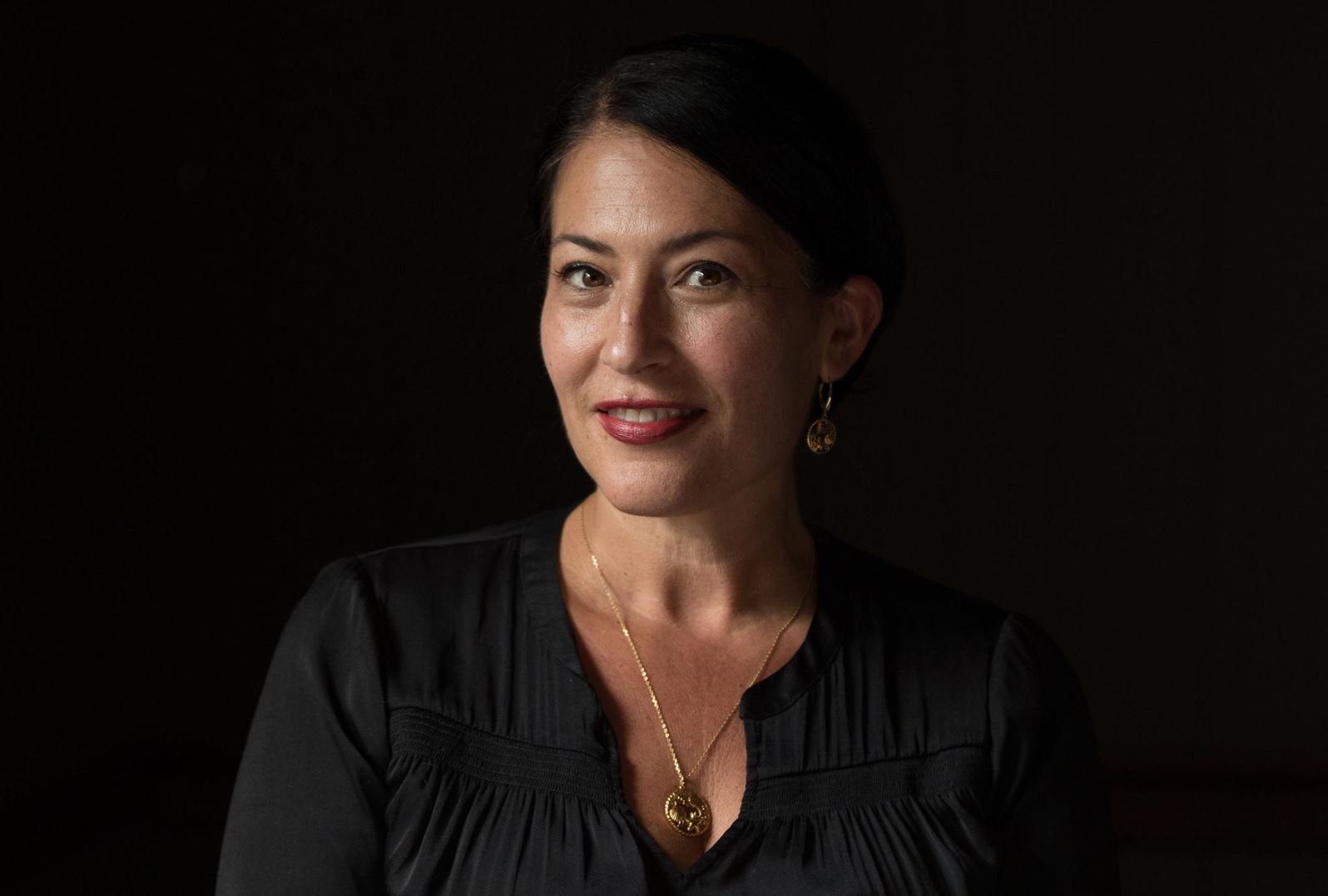

In Praise of Mystery: The Poetry of Ada Limón
October 15, 2024
In Praise of Mystery: The Poetry of Ada Limón
By Traci Brimhall, 2023-2026 Poet Laureate of Kansas
One of the first things I learned about poetry was how often attention was kin to prayer—a lesson I see often in the work of Ada Limón. She deeply sees and names the plants, the animals, and the griefs and kindnesses of the world. In her poem “Sanctuary” she states she’s been “tricked into believing/I could be both an I/and the world…To be swallowed by being seen.” That’s a kind of wholeness I think many people yearn for—a self that is at one with the world around us. She is a watcher who shows readers the appetite of her eye, “to be made whole/by being not a witness,/but witnessed.”
Ada Limón is the author of six collections of poetry, most recently The Hurting Kind. Her books have received numerous accolades, including winning the National Book Critics Circle Award, being a finalist for the National Book Award and the Kingsley Tufts Award, and receiving a Guggenheim Fellowship. Her poems have appeared in countless esteemed publications, such as The New Yorker, The New York Times and American Poetry Review, but more importantly, her work has touched the minds and hearts of thousands of poetry readers—as well as the stars. One of her poems, “In Praise of Mystery: A Poem for Europa” is engraved on NASA’s Europa Clipper, which launched October 14th and will be orbiting Jupiter in 2030.
Limón’s mother is an artist and responsible for much of the art on her book covers. Limón grew up in Sonoma, California and now splits her time between Lexington, Kentucky and Sonoma. She is the 24th Poet Laureate of the United States and the first Latina to be Poet Laureate. As Poet Laureate, one of her main projects has been You Are Here: Poetry in the Natural World, an anthology of place-based writing. Some of those poems have also been carved into park benches for National Parks across the United States.
In NPR’s review of her latest collection, The Hurting Kind, the reviewer Jeevika Verma said that the book “asks for our attention to stay tender.” This is why I return to poems, this reminder that the world opens itself under attention. The Hurting Kind’s final poem, “The End of Poetry,” is a long list of images—“osseous and chickadee and sunflower/and snowshoes, maples and eyes, samara and shoot” but Limón says enough to it all. The whole poem is a single long sentence that calls for an end to the devotion of the eye and seeks a different kind of attention, for a different sense to open: “enough sorrow, enough of the air and its ease,/I am asking you to touch me.” Touch is another way of being intimate with the world and intimate with each other—it’s also something I think language can do. It holds, it soothes, it helps keep us in our bodies. It helps keep us falling back in love with the world and the stars beyond it.
Traci Brimhall is a professor of creative writing and narrative medicine at Kansas State University. She is the author of four collections of poetry, and her next book, Love Prodigal, will be out in 2024. Her poems have appeared in publications such as The New Yorker, The Nation, The New Republic, Poetry, The New York Times Magazine, and Best American Poetry. She’s received fellowships from National Endowment for the Arts, the National Parks Service, and Purdue Library’s Special Collections to study the lost poem drafts of Amelia Earhart. She’s the current poet laureate for the State of Kansas.
Join the Movement of Ideas
- READ In Praise of Mystery: A Poem for Europa by Ada Limón.
- WATCH the launch of the Europa Clipper. The NASA Spacecraft has the poem "In Praise of Mystery: A Poem for Europa" engraved on the vault plate.
- EXPLORE more Kansas stories in the Fall Humanities Kansas newsletter



